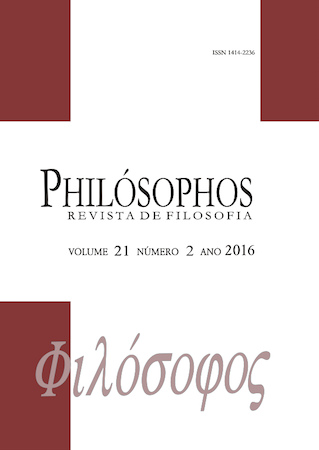RHETORIC AND CRITICISM OF LANGUAGE IN NIETZSCHE
DOI:
https://doi.org/10.5216/phi.v21i2.41180Keywords:
Nietzsche, rhetoric, turn rhetoric, language.Abstract
The aim of this paper is demonstrate how the recognizing of a "rhetorical turn" in Nietzsche, results in a marked "tension" featuring certain ambiguity about language in their thinking. Thus, to present this mobilization in Nietzsche within the discussion of the language, we examine three key aspects of this guidance for what constitutes a semantic impossibility: first, we identified the so-called "rhetoric turn"; Second, we deepen the theme from the analysis of Nietzsche's acession to Gerber's thesis which rhetoric is the "essence" of language; and, thirdly, we scrutinize the legitimacy of the distinction between proper language (natural) and inappropriate language (rhetoric). Therefore, this problematization of language held by Nietzsche appears unfold over his work and can be seen from the heterogeneity of discourse that his later writings include.Downloads
Downloads
Published
How to Cite
Issue
Section
License
Authors who publish in this journal agree to the following terms:
- Authors retain copyright and grant the journal right of first publication, with the work simultaneously licensed under a Creative Commons Attribution License that allows others to share the work with an acknowledgement of the work's authorship and initial publication in this journal.
- Authors are authorized to enter into separate, additional contractual arrangements for the non-exclusive distribution of the journal's published version of the work (e.g., publishing in an institutional repository or as a book chapter), with an acknowledgement of its authorship and initial publication in this journal.















